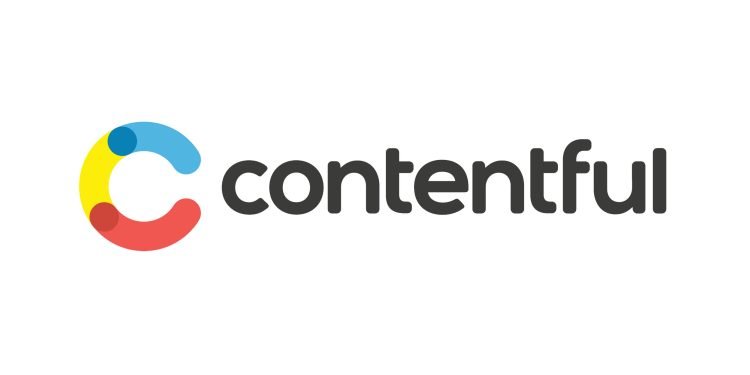Contentful is a highly popular headless content management system (CMS) that offers developers and content creators a flexible and versatile platform for managing digital content. Its API-first approach enables the creation and delivery of content across multiple platforms and devices. However, ensuring that your Contentful-driven website is fully optimised for search engines is crucial for increasing visibility and driving organic traffic. Let’s explore the best SEO-friendly practices for Contentful development, ensuring your website achieves the highest possible search engine rankings.
Optimising Content Structure
A well-organised content structure is crucial for enhancing the user experience (UX) and making it easier for search engines to crawl and index your website. Contentful allows you to create custom content types and fields, enabling you to design a clear and logical structure for your website. Consider the following tips:
- Create relevant and specific content types to categorise your content effectively.
- Use a descriptive naming convention for your content types and fields.
- Use hierarchies and relationships to organise content efficiently and avoid duplicating content.
Maximising URL Structure
Having a clear and consistent URL structure is essential for SEO, as it helps search engines understand the organisation of your website. Contentful enables you to create custom URLs for your pages, allowing you to incorporate relevant keywords and improve your website’s SEO. Keep these guidelines in mind:
- Use descriptive and relevant keywords in your URLs.
- Keep URLs short and avoid unnecessary characters.
- Use hyphens to separate words and maintain readability.
Leveraging Rich Snippets and Structured Data
Structured data and rich snippets can significantly improve your website’s visibility in search engine results. Contentful allows you to implement these elements through its custom fields and integrations. Consider the following tips:
- Use schema.org markup to provide search engines with additional context about your content.
- Leverage Contentful’s JSON fields to store structured data and incorporate it into your website.
- Implement Open Graph and Twitter Cards to enhance the appearance of your content when shared on social media platforms.
Enhancing On-Page SEO
On-page SEO is crucial for improving your website’s visibility and driving organic traffic. Ensure your content is optimised for relevant keywords, and incorporate them into your titles, headings, and body text. Additionally, pay attention to the following on-page SEO factors:
- Create unique and engaging meta titles and descriptions for each page.
- Ensure that your headings are descriptive and include relevant keywords.
- Use alt tags for images to provide additional context for search engines.
- Create internal and external links to improve your website’s authority and navigational structure.
Ensuring Mobile-Friendliness
With the increasing usage of mobile devices for internet browsing, ensuring that your Contentful-driven website is mobile-friendly is essential for SEO. Contentful’s responsive content delivery allows you to create a seamless user experience across different devices. Keep these tips in mind:
- Use responsive design techniques to ensure your website adapts to various screen sizes.
- Optimise images and media files to improve loading times on mobile devices.
- Use Contentful’s “Preview” feature to test your website’s appearance and functionality on different devices.
Implementing SEO Best Practices
In addition to the specific Contentful development techniques mentioned above, it is crucial to adhere to general SEO best practices for optimal results. Some of these include:
- Regularly updating and creating high-quality, engaging content.
- Monitoring your website’s performance using tools like Google Analytics and Google Search Console.
- Ensuring your website has a fast loading speed by optimising images, minifying code, and leveraging caching.
- Implementing SSL encryption to provide a secure browsing experience for your users and improve your website’s search engine ranking.
Localising Content for International Audiences
If your website caters to a global audience, localising your content is crucial for improving your search engine rankings in different regions. Contentful’s powerful translation and localisation features make creating and managing multilingual content easier. Consider the following tips when localising your content:
- Use Contentful’s built-in localisation features to manage translations of your content.
- Create region-specific content types and fields to cater to the needs of different audiences.
- Leverage hreflang tags to inform search engines of your pages’ language and regional targeting.
Boosting Site Performance and Accessibility
A website’s performance and accessibility are essential for SEO, as they directly impact the user experience. Contentful’s robust infrastructure and API-first approach make it easier to optimise your website’s performance and ensure accessibility. Keep the following tips in mind:
- Use Contentful’s Content Delivery API (CDA) to deliver content efficiently and improve loading times.
- Leverage Contentful’s Assets API to optimise and deliver images and media files responsively.
- Implement accessibility best practices, such as semantic HTML, ARIA attributes, and keyboard navigation, to ensure your website is accessible to all users.
Integrating SEO Tools and Plugins
Integrating SEO tools and plugins can streamline your SEO efforts and provide valuable insights into your website’s performance. Contentful’s extensibility enables you to integrate various SEO tools and plugins to optimise your website’s search engine. Consider the following:
- Integrate popular SEO tools like Google Analytics, Google Search Console, and Moz to monitor and analyse your website’s performance.
- Leverage Contentful’s App Framework to build custom integrations and extensions for your website’s specific SEO requirements.
- Explore the Contentful Marketplace for pre-built apps and extensions that can help improve your website’s SEO.
Monitoring and Optimising Your SEO Strategy
An effective SEO strategy requires continuous monitoring and optimisation. Regularly track your website’s performance and make data-driven adjustments to your content and development practices to ensure the best search engine rankings. Keep these tips in mind:
- Use analytics tools to identify improvement areas and monitor your SEO efforts’ impact.
- Keep up-to-date with the latest SEO trends and best practices to ensure your website remains competitive in search engine rankings.
- Continuously update and improve your content to maintain relevance and engage your audience.
In conclusion, optimising your Contentful-driven website for search engines is essential for increasing visibility and driving organic traffic. By implementing these SEO-friendly practices and consistently monitoring your website’s performance, you can achieve higher search engine rankings and reach a wider audience. Remember, an effective SEO strategy requires continuous effort and adaptation to ensure the best results.












